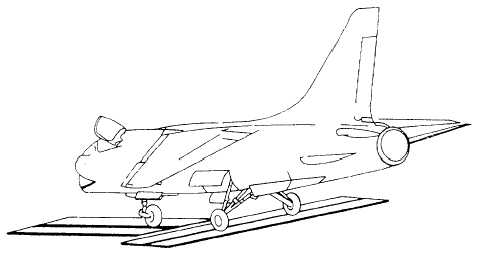|
MOBILE ELECTRONIC WEIGHING SYSTEM
(MEWS).
This system, shown in
figure 3-18, is designed to
provide weight data and compute the center

Figure
3-19.Stationary pit-type scales.
of
gravity of aircraft (as well as wheeled vehicles and cargo
loads). The complete system is portable and includes
a trailer for storage and transport, or it is mounted
on a single 88- by 108-inch pallet. Typical installation
setup time by two men is 30 minutes.
HEAVY-DUTY PORTABLE SCALES. This
system is designed to provide weight
only. Wheeled vehicles and
cargo may also be weighed on these scales. The
complete system is portable and completely self-contained.
Platform size is small, but it may be increased
by connecting two scales with a factory provided
charnel. Because of the small platforms, you must
exercise care when using this system. Typical installation
setup time by two men is 10 minutes.
STATIONARY PIT-TYPE SCALlES. Most
of the large scales are of
the stationary-beam and lever-balance
type. See figure 3-19. These scales are commonly
flush floor installations, although some are used
as surface-type portable scales. The flush floor installation
generally is in a permanent location, and the aircraft
must be taken to it. However, some flush floor scales
have the capability to be removed from their installations,
when necessary, and taken to the aircraft. These
scales are usually expensive and normally require a
special building or hangar.
Weighing with calibrated scales is the only sure method
of obtaining an accurate basic weight and center of
gravity location on an aircraft. The large stationary pit-type
scales must be calibrated or certified correct at least
once every 12 months. Heavy-duty portable scales and
MEWS scales must be calibrated at least once every 6
months.
|


|

